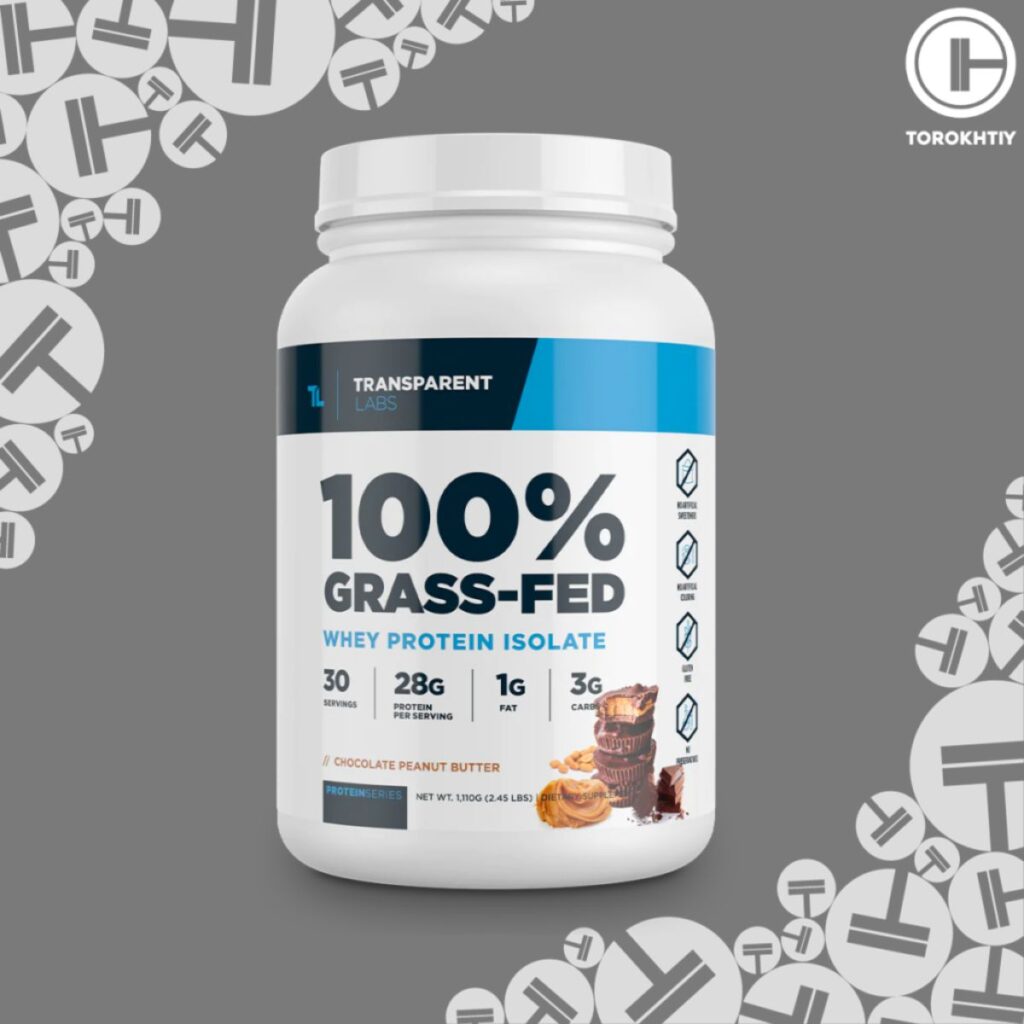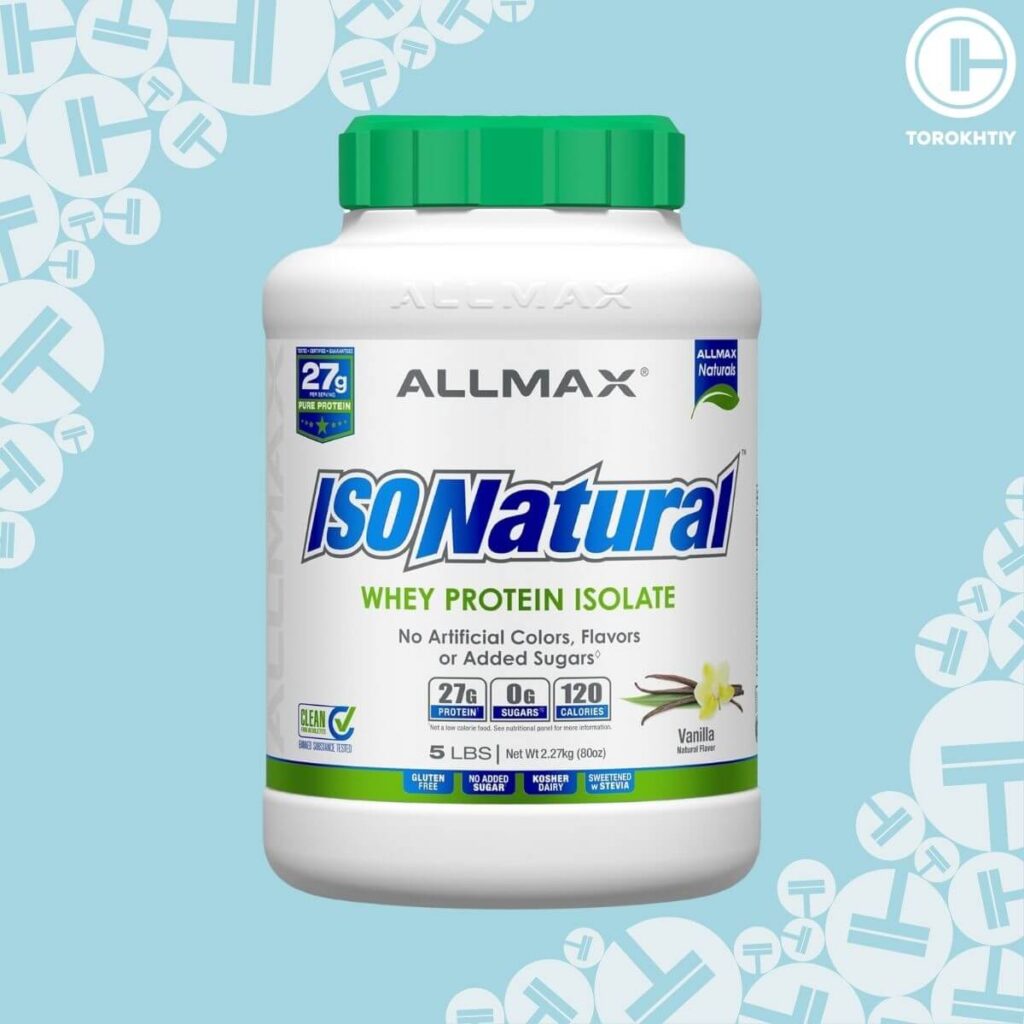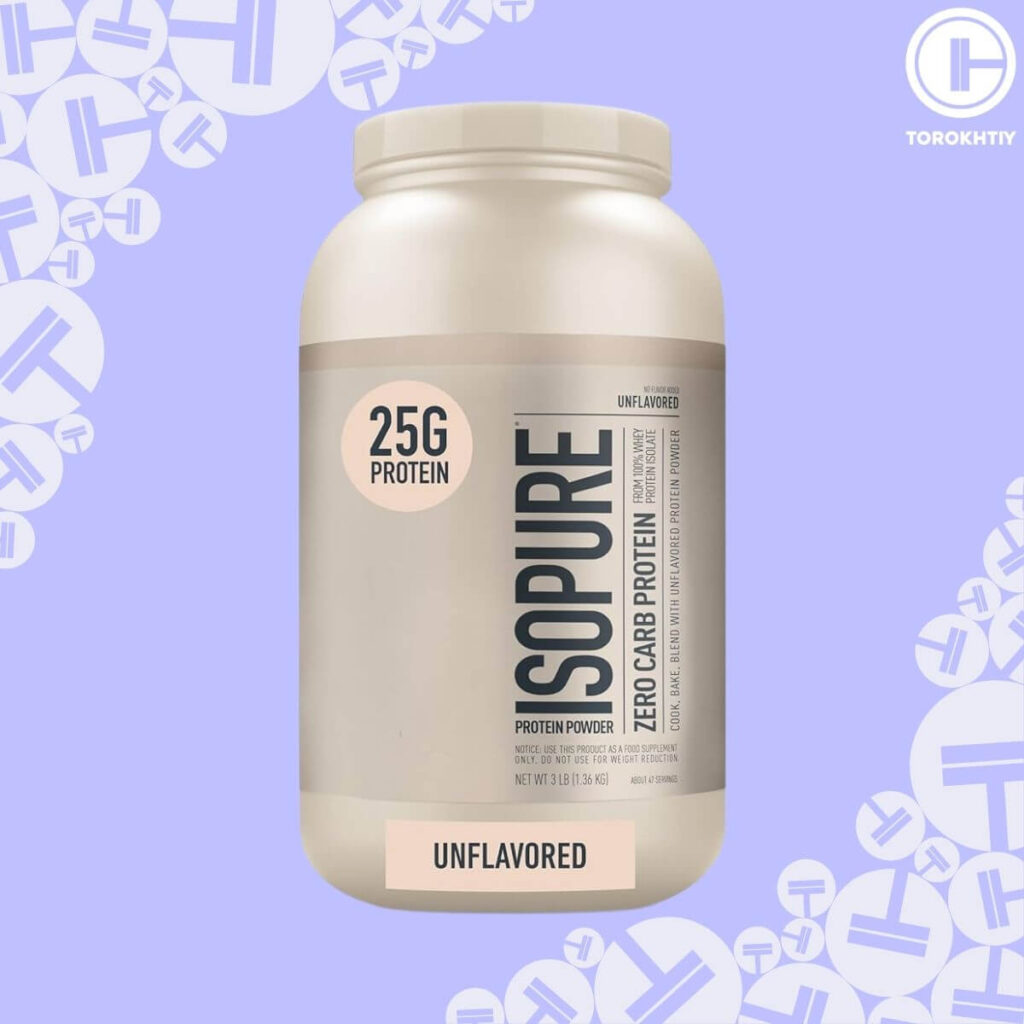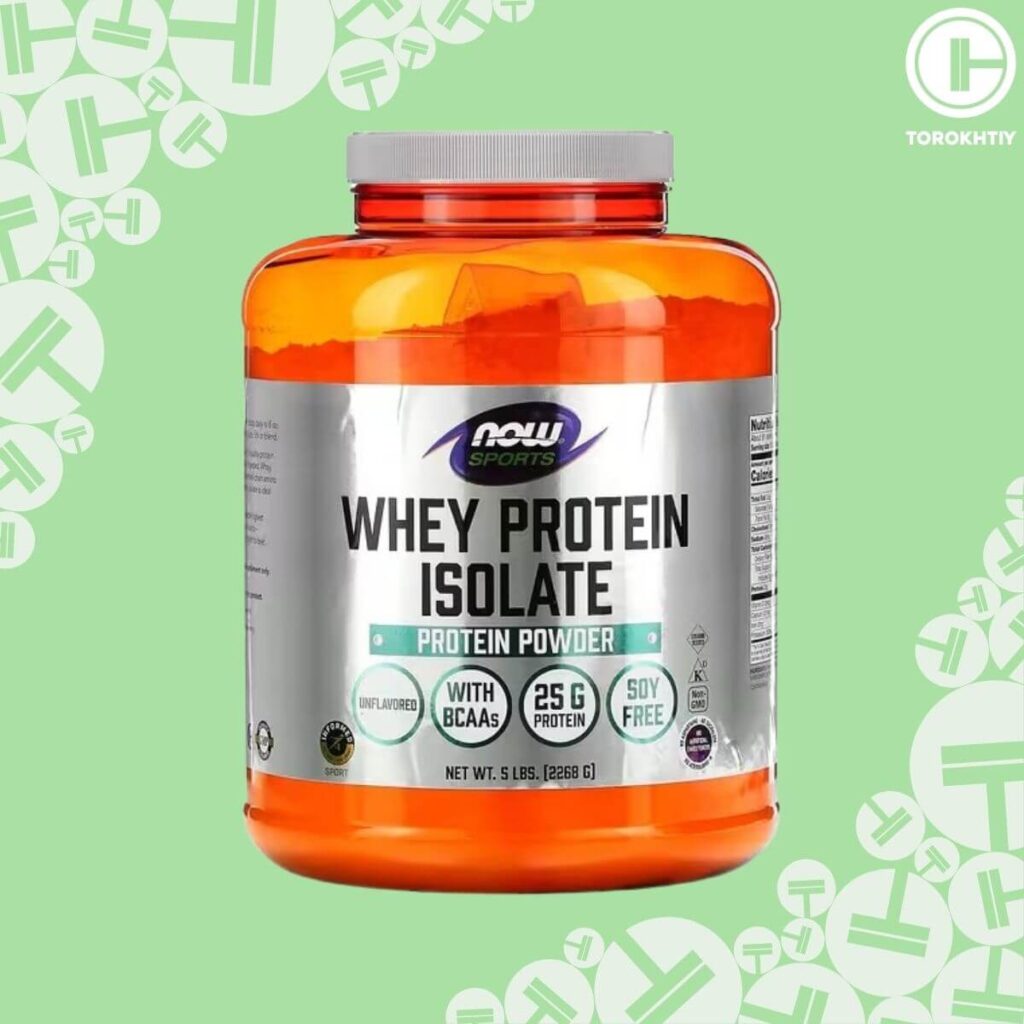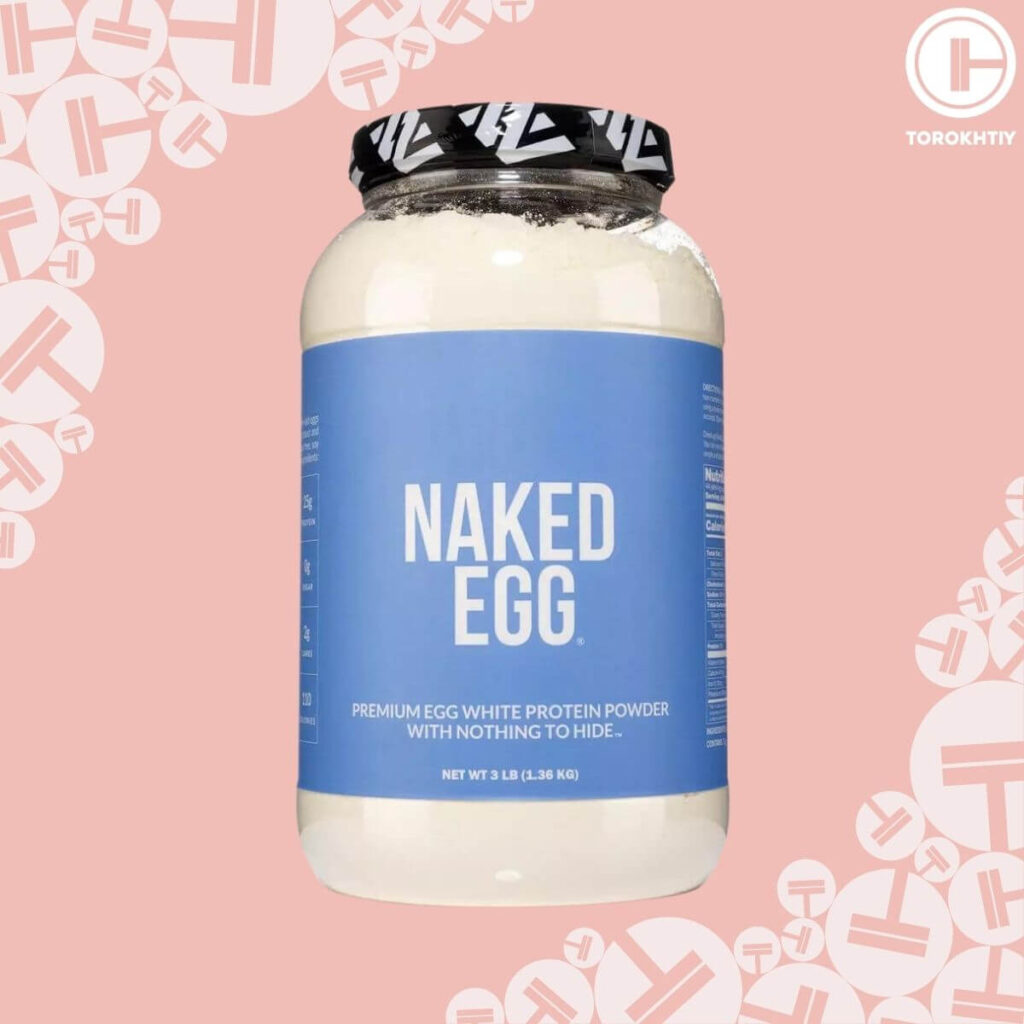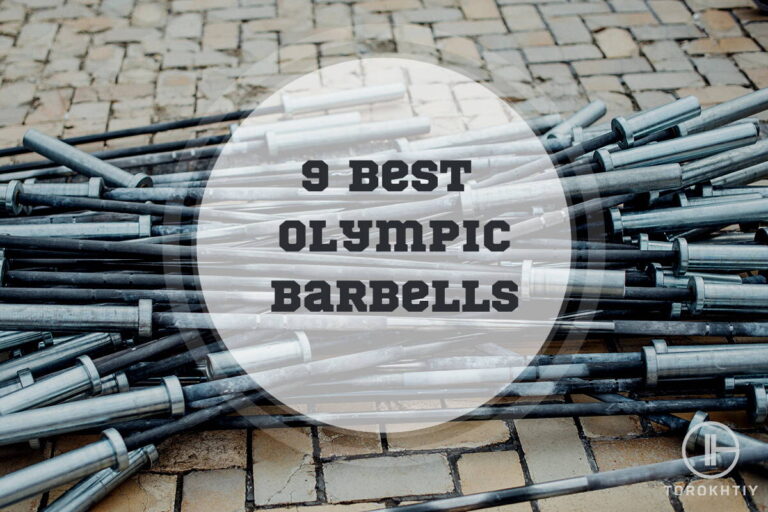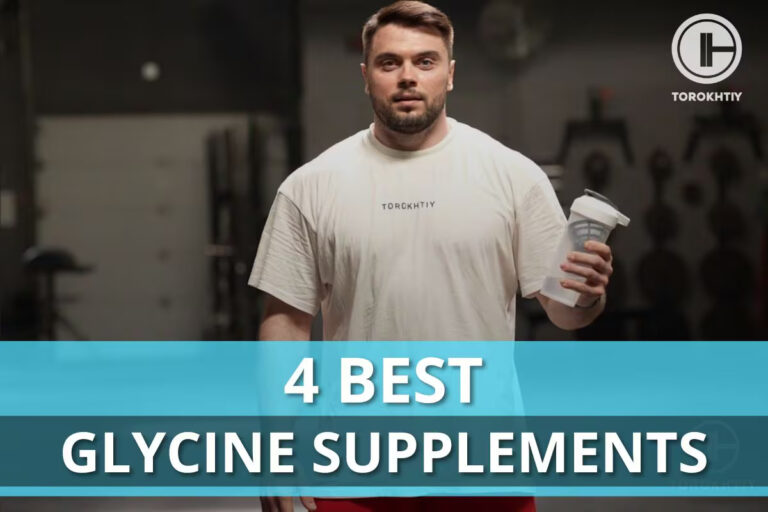5 Best Low FODMAP Protein Powders in 2026
In the search for the best low FODMAP protein powder, it is important to understand which characteristics of the product should be given primary attention. There are also nuances that are not obvious at first glance, but can play an important role in minimizing potential problems.
For example, potential intolerances to additional ingredients, which do not belong to the FODMAP group, but can still cause unpleasant symptoms in people with irritable bowel syndrome. In this article, you will see the rating of the proposed protein powders and learn what you should consider when choosing the best protein powder for IBS.
In a hurry?
In a hurry and can’t keep reading? How about you check out the Whey Protein Isolate by Transparent Labs.
Transparent Labs’ Grass-Fed Whey Protein Isolate is the top-rated low FODMAP protein powder, offering pure protein with no carbohydrates or significant fat, making it an ideal choice for various fitness goals.
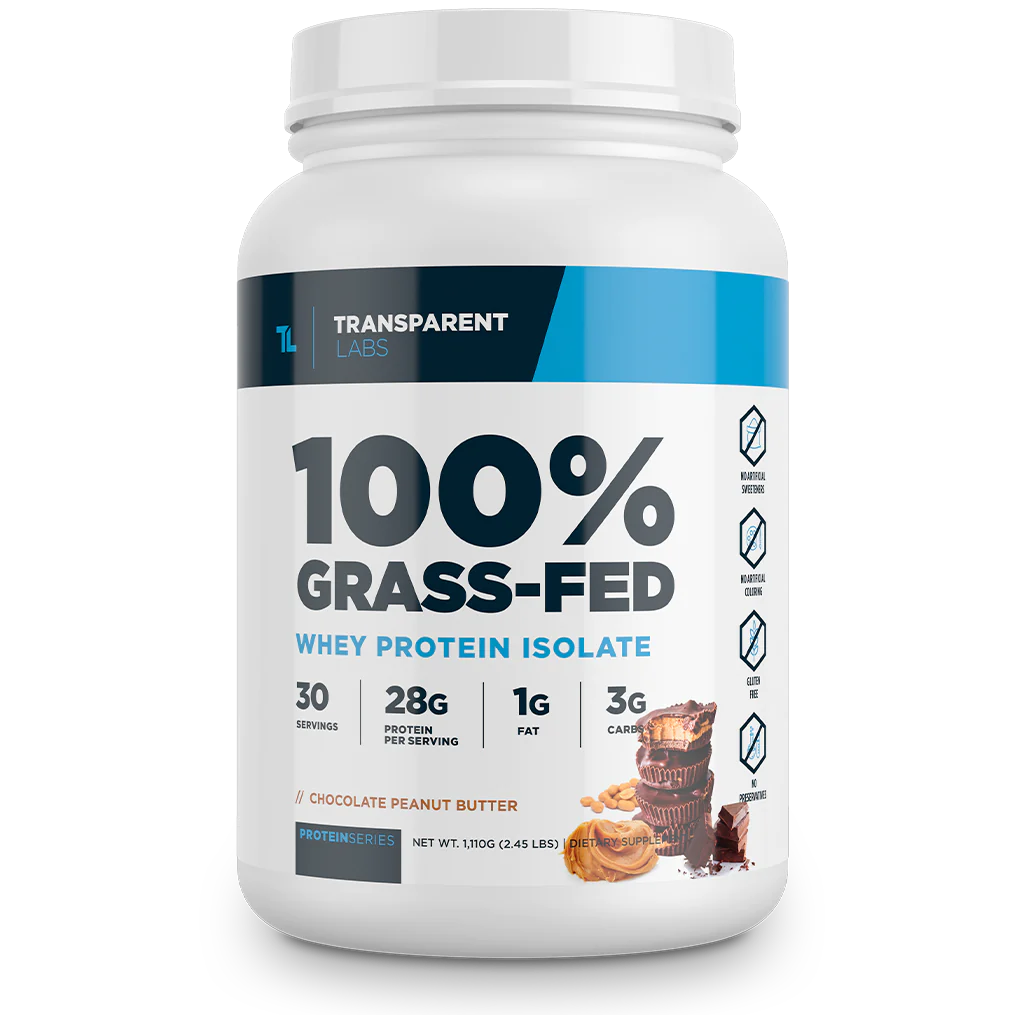
Our team of certified nutritionists and professional athletes has extensively tested 13 low FODMAP protein powders and only 5 made the cut. All protein powders were evaluated on 5 key criteria and our experts spent 4 weeks testing them.
Along with rigorous testing, they have also combed through hundreds of online user reviews to bring you the most accurate information. This list is updated on a regular basis, so don’t be shy and share your experiences with us in the comment section!
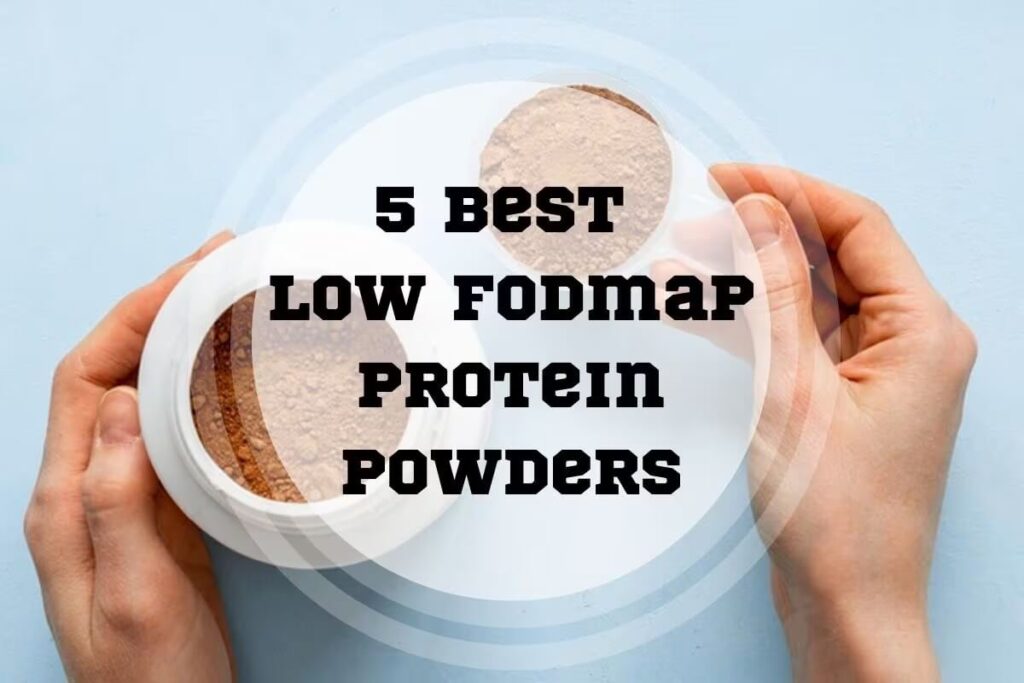
Top 5 Best Low FODMAP Protein Powders Reviewed
- Whey Protein Isolate by Transparent Labs – Top Pick
- ALLMAX, IsoNatural Whey Protein – Runner-Up
- Isopure Zero Carb
- NOW Foods Sports Whey Isolate
- Naked Egg White Protein
| Product | Total | Ingredients Breakdown | Taste | Nutrition Label Transparency | Mixability | Price/ Quality |
|---|---|---|---|---|---|---|
| Transparent Labs | 48.5 | 10 | 9.5 | 9.5 | 10 | 9.5 |
| ALLMAX | 48.5 | 10 | 8.5 | 10 | 10 | 10 |
| Isopure | 48 | 10 | 9 | 9.5 | 10 | 9.5 |
| NOW Foods | 47.5 | 9.5 | 8.5 | 10 | 10 | 9.5 |
| Naked | 46.5 | 9 | 8.5 | 9.5 | 10 | 9.5 |
1. Whey Protein Isolate by Transparent Labs
- Diet Type (best for): Build muscle, Recovery, Weight loss
- Suitable for Vegans: No
- Protein Source: Whey Protein Isolate
- Serving size: ~32 g
- Price per serving: $2
- Protein-by-Weight Ratio (%): 87%
- Protein: 28 g
- Carbohydrates: 0 g
- Fat: 0.5 g
- Added Sugar: 0 gram
- Calories per serving: 120
- Company Founded: 2015
- Recommended by Athletes: Hafþór Björnsson, Paul Sklar, P A U L I N A
Grass-fed whey protein isolate from Transparent Labs takes the top spot in this best low FODMAP protein powder rating. Note that we are talking about the unflavored version, which does not contain a single gram of carbohydrates and only 0.5 g of fat.
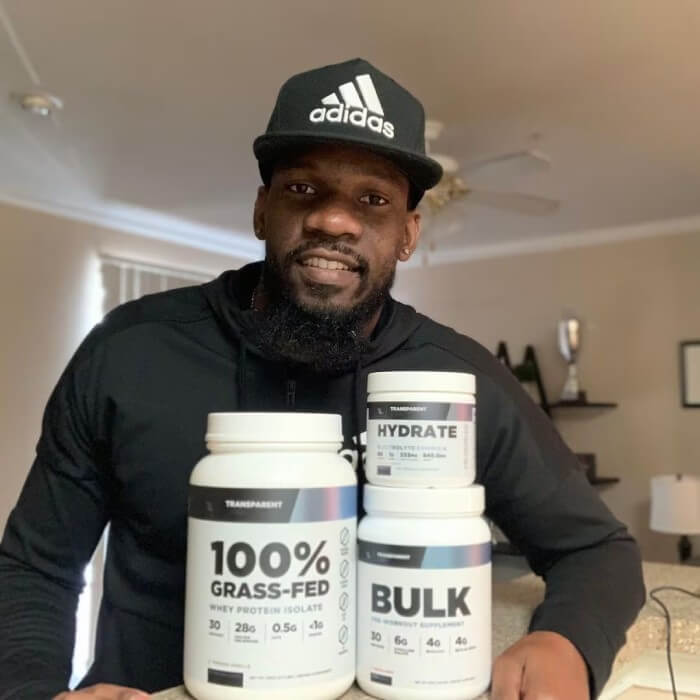
This is pure protein with only sunflower lecithin added as an emulsifier to provide a creamy mouthfeel (and no, people with IBS don’t have to worry about emulsifiers).
In general, this is one of the best proteins on the market, which is suitable for any goal – gaining muscle mass, losing weight or recovering from intense workouts.
Transparent Labs Whey Protein Isolate stands out as the best low FODMAP protein powder, delivering pure protein without any carbohydrates and minimal fat, making it a versatile option for muscle building and post-workout recovery.
Positives:
Could be better:
2. ALLMAX IsoNatural
- Diet Type (best for): Build muscle, Recovery, Weight loss
- Suitable for Vegans: No
- Protein Source: Whey Protein Isolate
- Serving size: 29 g
- Price per serving: ~$1.1
- Protein-by-Weight Ratio (%): 93%
- Protein: 27 g
- Carbohydrates: 0 g
- Fat: 0 g
- Added Sugar: 0 gram
- Calories per serving: 110
- Company Founded: 2004
- Recommended by Athletes: Dr. Brett Kahn, Jen Ronzitti, Matt Kouba
Almost everything is perfect in this whey protein isolate from the Сanadian ALLMAX brand. It contains zero carbs, unlike whey protein concentrate, which generally cannot be considered as IBS friendly protein powder due to the presence of more lactose.
Let me remind you that carbohydrates in dairy products are presented in the form of lactose, which belongs to the FODMAP group. Therefore, the less lactose (ideally it should be zero), the better.
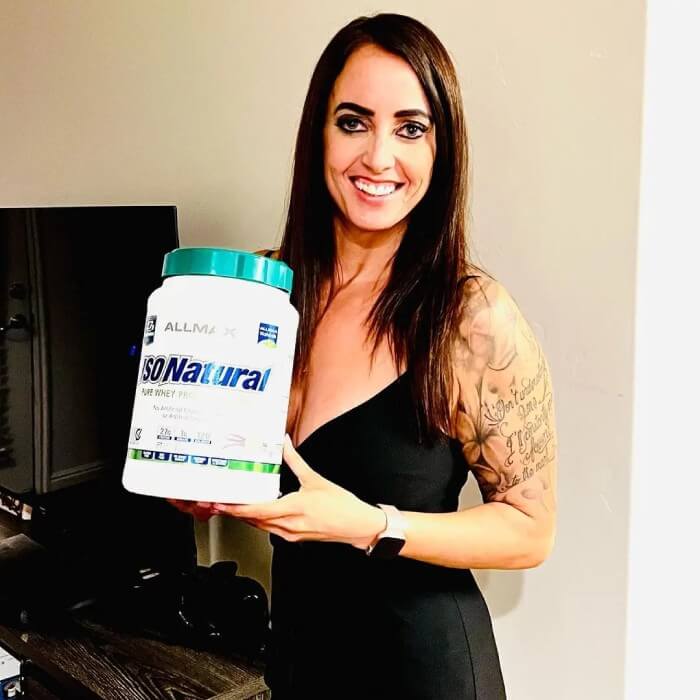
One serving of this product contains 27 grams of the high quality protein with the best protein-by-weight ratio in this ranking at 93%! Add in a little more than a dollar per serving, the Informed Choice certification (this is a known third party for testing dietary supplements), and you've got one of the best proteins on the market.
Note, however, that this protein has complaints about not having the most appealing taste (although that's not surprising for an unflavored protein powder). Some users also do not like the smell.
The Canadian ALLMAX brand offers an exceptional whey protein isolate with zero carbs, high protein content, Informed Choice certification, and competitive pricing, making it one of the top choices, despite potential taste.
Positives:
Could be better:
3. Isopure Zero Carb
- Diet Type (best for): Build muscle, Recovery, Cutting
- Suitable for Vegans: No
- Protein Source: Whey Protein Isolate
- Serving size: 29 g
- Price per serving: ~$1.75
- Protein-by-Weight Ratio (%): 86%
- Protein: 25 g
- Carbohydrates: 0 g
- Fat: 0 g
- Added Sugar: 0 g
- Calories per serving: 100
- Company Founded: 1984
- Recommended by Athletes: Heather Hardy, Gregory Choplin
Isopur Zero Carb fully justifies its name, because it does not contain a single gram of carbohydrates. One serving of this protein contains 25 g of high-quality protein, as well as zero carbohydrates and fat.
However, it is important to note that only the unflavored version of Isopure Zero Carb does not contain any additional ingredients besides soy lecithin (keep calm, this is not FODMAP).
Flavored versions contain a whole host of added vitamins and minerals, some of which can potentially cause or worsen gut symptoms. For example, magnesium oxide, which is added to flavored Zero Carb version, is an osmotic laxative.
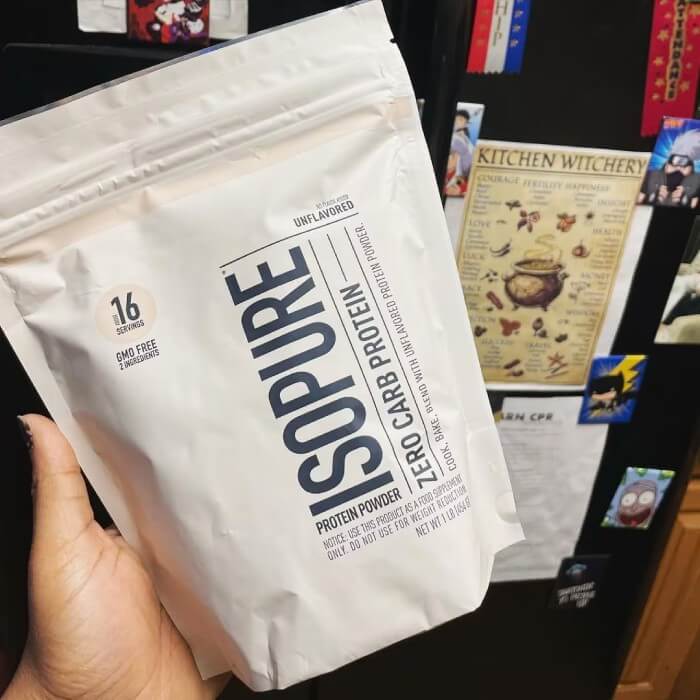
And since there are 3 types of irritable bowel syndrome (IBS with constipation, IBS with diarrhea, and IBS with mixed bowel habits), magnesium oxide can be helpful for the constipated type, but it can only make things worse for people with diarrhea type.
Keep this in mind and always consult your doctor before buying any dietary supplement, including when you choose the best protein powder for IBS.
Isopur Zero Carb is a carb-free protein powder that provides 25g of high-quality protein per serving, making it a suitable option for those seeking a low-carbohydrate protein supplement.
Positives:
Could be better:
4. NOW Foods Sports Whey Isolate
- Diet Type (best for): Build muscle, Recovery, Cutting
- Suitable for Vegans: No
- Protein Source: Whey Protein Isolate
- Serving size: 28 g
- Price per serving: ~$1
- Protein-by-Weight Ratio (%): 89%
- Protein: 25 g
- Carbohydrates: <1 g
- Fat: 0.5 g
- Added Sugar: 0 g
- Calories per serving: 110
- Company Founded: 1968
- Recommended by Athletes: Patrick Coyn, Nia Akins
NOW Foods Sports Whey Isolate is another product with a high protein-by-weight ratio, providing you with 25g of protein from 28g of powder. However, compared to all the products above, it still contains a minimal amount of lactose.
But don't be in a hurry to put a cross on this protein, because the amount of lactose is less than 1 gram. It is likely that your gut can handle that much lactose.
Moreover, protein powders may be very unpredictable and you will still have to spend some time to find your ideal product (as well as serving size) when creating low FODMAP protein shakes which do not cause problems.
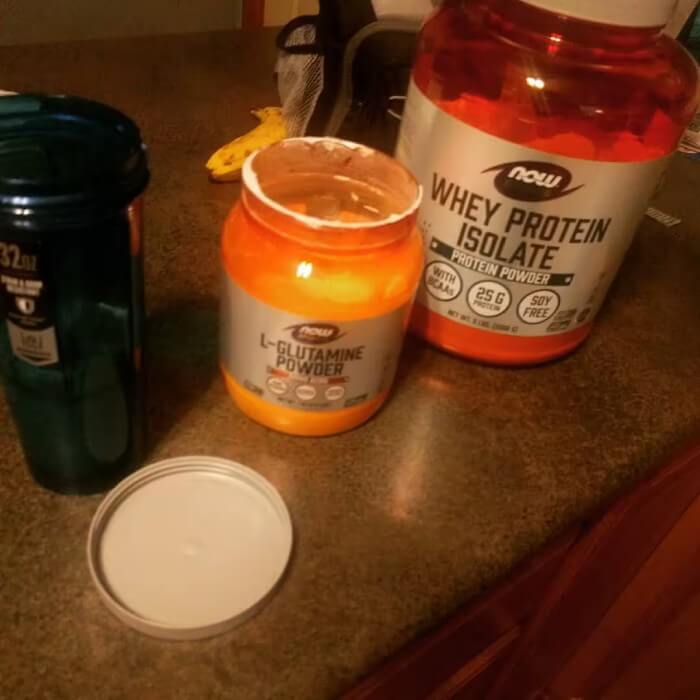
Among the particular advantages of this product are the lowest amount of sodium per serving (only 45 mg) in this rating and the presence of a very strict Informed Sport certification. Thus, if you are a professional athlete, the risk of failing doping control is minimal.
Like the rest of the products in this rating, NOW Foods powder contains only whey protein isolate and sunflower lecithin. No additional ingredients (for unflavored version) that can potentially cause intolerances (but keep in mind that milk protein itself can cause intolerance).
However, this protein has one drawback - a significant number of reviews from dissatisfied users regarding the poor taste.
NOW Foods Sports Whey Isolate offers a high protein content with minimal lactose, making it a potential option for those seeking a low FODMAP protein powder, although taste may be a consideration for some users.
Positives:
Could be better:
5. Naked Egg White Protein
- Diet Type (best for): Build muscle, Recovery, Cutting
- Suitable for Vegans: No
- Protein Source: Egg White Protein
- Serving size: 31 g
- Price per serving: ~$1.55
- Protein-by-Weight Ratio (%): 80%
- Protein: 25 g
- Carbohydrates: 2 g
- Fat: 0 g
- Added Sugar: 0 g
- Calories per serving: 110
- Company Founded: 2014
- Recommended by Athletes: Daniel Victor, Hope
Naked Egg is the only non-whey protein supplement in this ranking. If you ask several nutrition experts what product would be the perfect alternative for people with lactose intolerance, many of them will name egg protein.
After all, it does not contain lactose and is therefore a good alternative for mixing a low FODMAP protein shake or adding it to baked goods. However, keep in mind that egg white is not suitable for people with egg allergy, and it can also cause indigestion in some people.
This product contains 25 g of high-quality protein per serving, 0.5 g of fat and 2 g of carbohydrates (non-lactose). The cost of one serving is only $1.55, which is much lower than the average price of most egg protein powders on the market.
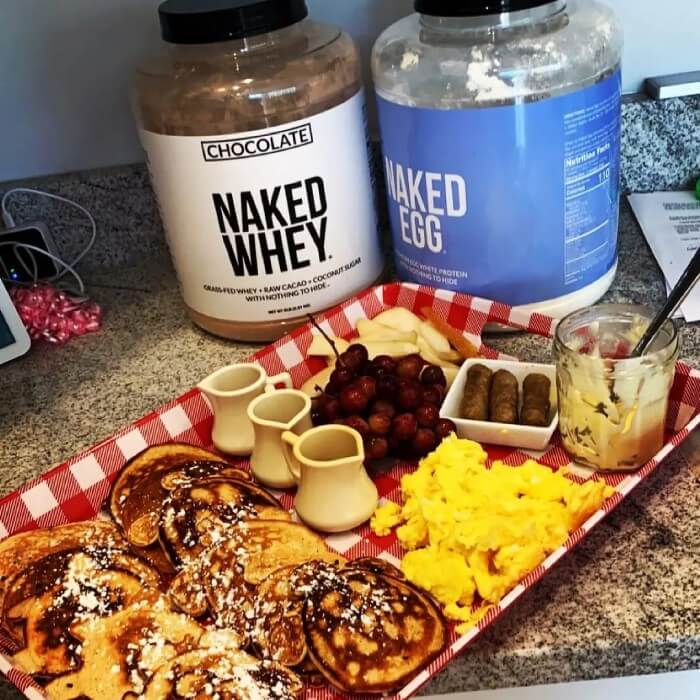
Among the disadvantages of egg protein powders in general and this product in comparison with proteins of milk origin - less appealing taste (although this is very subjective), less versatility, a much smaller amount of calcium, as well as a large amount of sodium per serving.
If you follow a low-sodium diet in addition to the low FODMAP diet, you should take this into account.
Naked Egg offers a lactose-free alternative to whey protein with 25g of high-quality protein per serving, although it may have a less appealing taste and lower calcium content compared to milk-based proteins.
Positives:
Could be better:
What Is FODMAP and Are They Found in Protein Supplements?
The abbreviation FODMAP stands for Fermentable, Oligo-, Di-, Monosaccharides And Polyols. This is a group of short-chain carbohydrates that are not absorbed in the small intestine, but enter the large intestine, where they are fermented by gut bacteria and cause gas formation.
These processes occur in everyone, but people with irritable bowel syndrome (IBS) have pronounced problems due to abnormalities in motility, brain-gut interactions, highly sensitive gut wall and other reasons.
With IBS, in addition to increased gas formation, there are symptoms such as lower abdominal pain and discomfort, as well as altered bowel habits (diarrhea, constipation or both).
The Low FODMAP diet helps alleviate symptoms in people with IBS by minimizing the consumption of foods that contain the highest amount of short-chain carbohydrates belonging to the FODMAP group.
Thus, to choose a suitable protein supplement, it is necessary to carefully study its macronutrient composition and additional ingredients so that they do not include short-chain carbohydrates.
Lactose is a vivid example of FODMAP. Therefore, in order for whey protein and IBS to coexist normally, the supplement must contain zero or the minimum possible amount of lactose, as well as the absence of additional ingredients that may cause problems.

How to Find the Best Low FODMAP Protein Powder?
It is not possible to generalize protein supplements as suitable or unsuitable for people with IBS. After all, the specific macronutrient composition and additional ingredients differ greatly from product to product.
Therefore, it is necessary to consider the individual product to understand whether it can be considered as IBS friendly protein powder. Below are the key components to avoid.
1. Lactose
Choose a whey protein isolate that ideally contains 0 g of carbohydrates, because lactose is a disaccharide from the FODMAP group, which is found in dairy products, including whey. Whey protein concentrate usually contains more lactose than isolate because it goes through fewer filtration steps.
Therefore, if you asked yourself the question "Is whey protein low FODMAP", know that you need to choose a product that does not contain lactose in the first place. However, this is only the first step to minimize possible gut issues.
2. Fructose-Containing Added Sugars
Fructose is a monosaccharide from the FODMAP group. And while problems generally start when a particular food (including source of added sugar) contains a higher proportion of fructose than glucose, in order to minimize symptoms, it may be better to avoid protein powders with added sugar altogether, which will automatically avoid fructose as well. Thus, not a single gram of fructose will be able to enter the large intestine.
So again, just choose a supplement with 0 g of carbohydrates in the composition. Moreover, in this way you will automatically exclude not only fructose, but also lactose!

3. Fructans and Galacto-Oligosaccharides (Gos)
If you are looking for a low FODMAP vegan protein powder, then you should be aware that they may contain fructans and GOS. This is a group of oligosaccharides that are found in wheat, rye, legumes/pulses and other products.
Keep in mind that plant-based protein supplements (such as soy, pea and others) are particularly difficult to purify, which is why they may contain some FODMAPs.
So if you've ever wondered "Is pea protein low FODMAP", now you know that plant protein supplements may not be as easy for people with IBS as they may seem.
In fact, vegan proteins are often recommended as an alternative to whey protein powders for those with lactose intolerance, but this recommendation may still not be suitable for people with IBS.
An example of fructans that can be found in protein powders is inulin, which is contained in chicory root, artichoke and other plants. In general, according to the experts from Monash University (in which the Low-FODMAP diet was invented), it is better to avoid products that have the word 'prebiotic' on the packaging (which include inulin).

4. Polyols
These are sugar alcohols found naturally in certain fruits, vegetables and mushrooms, and also added as a sweetener to many products, including protein powders and protein bars.
The FDA has currently approved the use of 8 polyols, including sorbitol, mannitol, xylitol, maltitol and other polyols ending in "-ol". When a certain individual threshold is reached, they trigger gastrointestinal symptoms and exert laxative effects. This especially applies to mannitol and sorbitol, which have the greatest laxative effect among polyols.
There are exceptions such as erythritol, which does not normally lead to gastrointestinal changes. However, for the sake of simplification, it is best to choose a protein powder that does not contain any ingredient ending in "-ol".
Additional Recommendations for Choosing Ibs Friendly Protein Powder
1. Look For Sample Products
If this is not possible, but the supplement seems suitable in terms of key parameters, it is better to first buy the smallest of the available packages to understand whether this particular product will not trigger or worsen symptoms.
If symptoms do not worsen, then this particular protein is suitable for you and you can buy a large package to optimize costs (usually the larger the package, the lower the cost per serving).
In general, it must be taken into account that it is impossible to predict the gut reaction of a specific person to a specific protein powder. This is especially true for people with IBS and other gastrointestinal conditions.
2. Choose Products With the Least Amount of “Other Ingredients”
It is better to buy protein powders that contain a minimum amount of additional ingredients besides the protein itself. For example, lecithin as an emulsifier to provide a creamy mouthfeel, and nothing else.
However, consider that the disadvantage of this approach may be a less attractive taste. On the other hand, you won't even need to remember the entire list of FODMAPs to avoid.
There is another reason to prefer protein supplements with minimal additional ingredients. The thing is, people with IBS usually have a very sensitive gut, which may react to additional ingredients that you might not even think about.
For example, stevia and monk fruit, which are often used as sweeteners, may also cause gas and diarrhea despite the fact that none of them are in the FODMAP category. You may also have hypersensitivity to some food additives.
For example, some people may react to colorings (including natural turmeric) and other food additives that may be added to protein powders

FAQ
Is There Low FODMAP Protein Powder?
In order to choose a supplement with no or a minimal amount of FODMAPs, you need to consider a specific product. When choosing a supplement, follow the instructions above and your doctor's recommendations.
Can I Have Whey Protein On A Low FODMAP Diet?
At least you can try. However, keep in mind that you may need to try a few different products from different brands to make sure you can use this supplement. You can also experiment with the amount and form of using protein powder.
For example, instead of the recommended serving size indicated on the label, try to reduce the portion. Also, don't focus only on protein shakes, but try adding the powder to cooked oatmeal or to pancakes mix.
You can also try one or two servings of a whey protein isolate that a family member or close friend uses. That way, you won't be disappointed by buying a large package of protein powder that your gut may not appreciate.
How Do You Get Protein On A Low FODMAP Diet?
In fact, you don't need to take protein supplements to get enough protein. There is a large list of high-protein products that are not included in the FODMAP group: poultry, fish and seafood, red meat, eggs, hard cheeses and yogurts (if necessary, lactose-free).
You can also try tofu, legumes and other plant-based sources of protein based on your individual tolerance. And don't forget to follow your doctor's recommendations!
Conclusion
In order to buy the best protein powder for IBS, choose supplements that do not contain lactose, fructose (and added sugar in general), polyols and other short-chain carbs from the FODMAP group (such as inulin).
Also, to minimize gut symptoms due to potential intolerances to additional ingredients, ideally choose products that contain only protein and lecithin (which is not a FODMAP).
The best product in this rating is whey protein isolate from Transparent Labs. Try it and share your impressions in the comments! What do you think about this article? Is it useful for you?
Also read:
- Best Protein Powder For Beginners
- Protein Shake With Milk Or Water
- Best Cookies and Cream Whey Protein
- Best Protein With Creatine
- Best Keto Protein Powder
- Best Casein Protein Powder
- Best Glycine Powder
References:
- Research Update: Dietary Emulsifiers // Monashfodmap: https://www.monashfodmap.com /blog/research-update-dietary-emulsifiers/
- A Randomized Double-blind Placebo-controlled Trial on the Effect of Magnesium Oxide in Patients With Chronic Constipation // NCBI: https://www.ncbi.nlm.nih.gov/ pmc/articles/PMC6786451/
- Definition & Facts for Irritable Bowel Syndrome // NIDDK: https://www.niddk.nih.gov/health-information/digestive-diseases/irritable-bowel-syndrome/definition-facts
- Milk allergy // Mayoclinic: https://www.mayoclinic.org /diseases-conditions/milk-allergy/symptoms-causes/syc-20375101
- Low-FODMAP Diet for Irritable Bowel Syndrome: What We Know and What We Have Yet to Learn // Annualreviews: https://www.annualreviews.org /doi/10.1146/annurev-med-050218-013625
- FODMAPs and Irritable Bowel Syndrome // Monashfodmap: https://www.monashfodmap.com /about-fodmap-and-ibs/
- The Low FODMAP Diet: What Can I Eat? // CDHF: https://cdhf.ca/en/the-low-fodmap-diet-what-can-i-eat/
- Protein powders and IBS // Monashfodmap: https://www.monashfodmap.com /blog/protein-powders-and-ibs/
- A Systematic Review of the Effects of Polyols on Gastrointestinal Health and Irritable Bowel Syndrome // NCBI: https://www.ncbi.nlm.nih.gov/ pmc/articles/ PMC5508768/
- Gastrointestinal Disturbances Associated with the Consumption of Sugar Alcohols with Special Consideration of Xylitol: Scientific Review and Instructions for Dentists and Other Health-Care Professionals // NCBI: https://www.ncbi.nlm.nih.gov /pmc/articles/ PMC5093271/
- Nutrition and healthy eating // Mayoclinic: https://www.mayoclinic.org /healthy-lifestyle/nutrition-and-healthy-eating/in-depth/artificial-sweeteners/art-20046936
Why Trust Us?
With over 20 years in Olympic Weightlifting, our team does its best to provide the audience with ultimate support and meet the needs and requirements of advanced athletes and professional lifters, as well as people who strive to open new opportunities and develop their physical capabilities with us.
All products we select are primarily approved and tested by the Olympic Weightlifting Champion Oleksii Torokhtiy. Under his guidance, we provide honest and reasonable assessments of the products we review by checking their characteristics, packaging, design, comfort and durability features, and general product rating. We select products from only high-quality and trusted sports brands, thus vouching for their quality.
The product testing process is described in more detail here
Author: Oleksandr Maksymenko
Certified Sports Nutritionist,
MSc Sports Dietetics
Specializing in: Weight management, Fitness / Sports nutrition
Oleksandr is a professional fitness nutritionist certified by the Fitness Professional Association (FPA). He follows the principles of evidence-based dietetics and fosters a healthy relationship with food in his clients, ensuring there are no strict prohibitions on their favorite foods or frequent lapses. His primary goal is not only to achieve results for you but also to sustain them over the long term, all while enjoying tasty and delicious food.
If you have any questions/suggestions/any other inquiries considering product reviews, you can reach out to us via email – [email protected]

